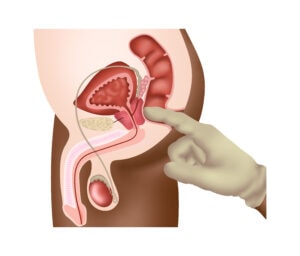The excretory system’s organs kidneys, ureters, bladder, and urethra work together to filter blood, produce urine, and expel waste, which involves the organs in the excretory system. This guide explains each organ’s role in maintaining homeostasis.
Key Takeaways
- The excretory system comprises key organs including the kidneys, ureters, urinary bladder, and urethra, which work together to filter blood, produce urine, and eliminate waste.
- Supporting organs such as the skin, lungs, liver, and large intestine assist in waste elimination, highlighting the diverse mechanisms of the excretory system beyond the primary organs.
- Common disorders of the excretory system, such as kidney stones, chronic kidney disease, and UTIs, can hinder waste removal and significantly impact overall health.
Key Organs of the Excretory System
The kidneys, ureters, organs of the urinary bladder, and urethra form the core of the excretory system. These organs collaborate to filter blood, producing urine, and eliminate waste from the body. Each organ has a specific role that enhances the system’s overall efficiency.
The kidneys, acting as the body’s natural filters, remove wastes and regulate fluid balance. The ureters transport urine from the kidneys to the urinary bladder, where it is stored until excretion. The urethra then expels urine from the body.
Collectively, these main organs form the backbone of the excretory system, ensuring effective waste elimination and maintaining homeostasis.
Kidneys
The kidneys are two bean-shaped organs located on either side of the vertebral column in the abdominal cavity, each measuring approximately 10-12 cm in length. They consist of the renal cortex, renal medulla, and renal pelvis, each playing a crucial role in the function of two kidneys.
Over a million nephrons, the functional units of the kidneys, filter blood and produce urine. Nephrons are of two types: cortical and juxtamedullary, each unique in their filtration process. Filtration begins in the glomerulus, a network of capillaries within each nephron, removing unwanted compounds from the bloodstream.
After filtration, waste products pass through the collecting ducts into the renal pelvis before being transported to the ureters. The kidneys’ ability to filter blood and regulate body fluids is crucial for waste removal, maintaining overall health, and preventing conditions such as kidney stones and kidney diseases.
Ureters
The ureters, muscular ducts typically 25-30 cm in length, transport urine from the kidneys to the urinary bladder, ensuring smooth and efficient passage about the size.
Equipped with ureterovesical valves, the ureters prevent backflow, maintaining a one-way flow from the kidneys to the bladder.
Urinary Bladder
The urinary bladder, a muscular sac, bladder stores urine until expulsion. It can expand to accommodate up to 400 ml of urine. During urination, the bladder contracts, and urine is expelled via the urethra as sphincter muscles relax. This process is controlled by the central nervous system for smooth and voluntary expulsion, involving the urethral sphincter.
The placement of the bladder differs between men and women, adapting to their anatomical structures. The bladder receives urine from the ureters, with one ureter connected to each kidney, making it a central hub for urine storage and expulsion.
Urethra
The urethra, the final passageway for urine to exit the body, varies in length between sexes, being shorter in females and longer in males. In males, it also carries sperm, serving as a common pathway for both semen and urine.
The urethra’s primary function is to ensure that urine passes efficiently from the bladder to the exterior, completing the main function of the excretory process.
Supporting Excretory Organs
Several supporting organs assist in the excretion process, ensuring efficient waste removal. These include the skin, lungs, liver, and large intestine, each contributing uniquely to the excretory system.
Skin
The skin, part of the integumentary system, excretes waste through sweat glands. Sweat glands eliminate excess water, salts, and a small amount of urea, helping to regulate body fluids and maintain homeostasis.
Humans can perspire up to 10 liters of sweat in a day, highlighting the skin’s significant role in waste elimination for the human body and human beings.
Lungs
The lungs, part of the respiratory system, remove gaseous wastes like carbon dioxide and water vapor from the bloodstream. By exhaling these gases, the lungs help maintain the acid-base balance in the body, underscoring their importance in the excretory system.
Liver
The liver detoxifies harmful compounds, converting ammonia into urea, which is then excreted by the kidneys. It also excretes bilirubin in bile, a waste product of red blood cell breakdown.
Large Intestine
The large intestine eliminates solid wastes and reabsorbs liquid waste from indigestible food matter. It collects wastes, including bilirubin from the liver, and reabsorbs any remaining usable water before waste removal in the gastrointestinal tract.
Mechanism of Excretion
Excretion involves removing wastes from the body through mechanisms like glomerular filtration, tubular reabsorption, and tubular secretion. These processes efficiently eliminate waste products while reabsorbing essential nutrients.
Glomerular Filtration
Glomerular filtration, the first step in urine formation, occurs in the nephron’s glomerulus. The filtration membrane allows only water and small solutes to pass, retaining blood cells and large proteins in circulation.
This process ensures effective blood filtration by the kidneys remove unwanted compounds.
Tubular Reabsorption
During tubular reabsorption, essential nutrients like glucose, amino acids, and ions are reclaimed from the filtrate back into the bloodstream. The collecting ducts reabsorb large amounts of water, crucial in final urine concentration, influenced by antidiuretic hormone.
This process maintains the body’s electrolyte balance and hydration levels.
Tubular Secretion
Tubular secretion transfers waste ions and hydrogen ions from the blood into the renal tubule for urine formation. This process regulates blood pH and electrolyte balance, ensuring effective elimination of additional waste products.
Common Excretory System Disorders
The excretory system is susceptible to disorders like kidney stones, chronic kidney disease, and urinary tract infections (UTIs). These conditions can significantly impact waste removal efficiency and overall health.
Kidney Stones
Kidney stones form when excess wastes in the kidneys crystallize due to an imbalance in urine concentrations. These kidney stone vary in size and cause significant pain, affecting different parts of the urinary system.
Treatment options include surgery or ultrasound treatments to manage pain and remove the stones. In America, 12% of men will develop kidney stones at some point in their lives.
Chronic Kidney Disease
Chronic kidney disease is marked by a slow decline in kidney function, often caused by injury, blood loss, drugs, or poisons. Symptoms include abdominal pain, flank pain, high fever, and urinary tract issues, which can lead to kidney failure.
Dialysis is a crucial treatment that removes waste and excess fluids from the blood when the kidneys can no longer perform this function effectively.
Urinary Tract Infections (UTIs)
UTIs are bacterial infections affecting the urinary system, with bladder infections being the most common. Women are more frequently affected, and treatment typically involves antibiotics.
Role of the Excretory System in Homeostasis
The excretory system maintains homeostasis by regulating fluid balance, eliminating wastes, and balancing electrolytes in the extracellular fluid to achieve the correct balance in the human excretory system. The body maintains homeostasis through these critical functions.
The kidneys perform, along with many other body systems, to ensure the body maintains a stable internal environment.
Fluid and Electrolyte Balance
The kidneys filter blood to adjust electrolyte levels and balance hydration. Sodium and potassium levels are specifically regulated to ensure proper cell function, supporting various physiological processes. This balance is crucial for overall health and homeostasis.
Removal of Nitrogenous Wastes
The excretory system eliminates nitrogenous wastes like urea, uric acid, and ammonia, preventing toxicity. Urea, the major excretory product in humans, is formed from the breakdown of protein-containing foods. This process is essential for maintaining a healthy internal environment.




